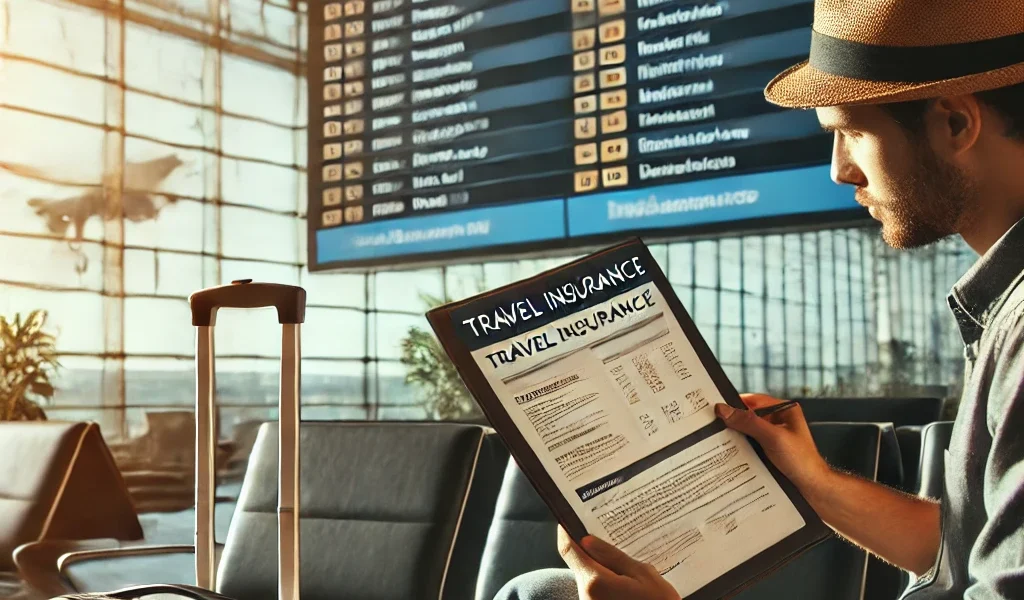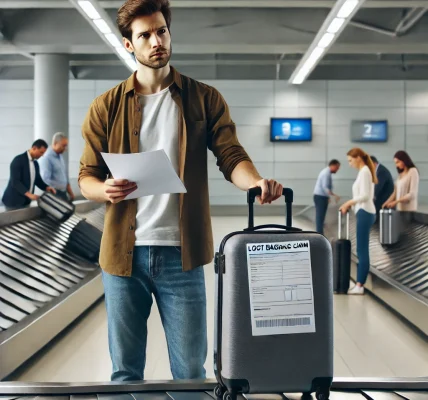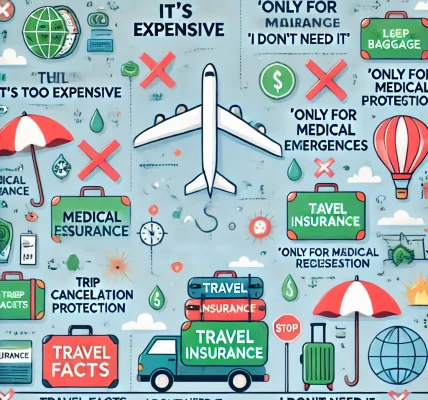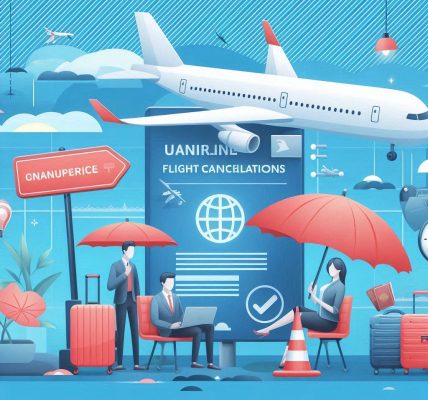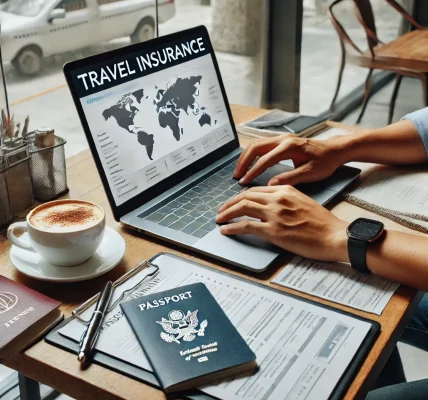Introduction
Traveling to new destinations can be exciting and rewarding, but unexpected situations can arise at any time. From flight cancellations and medical emergencies to lost baggage and trip interruptions, various risks can impact your travel experience. This is where travel insurance plays a crucial role in providing financial protection and peace of mind.
Understanding the different types of travel insurance coverage is essential for selecting the right policy that meets your needs. In this blog, we will explore the key types of travel insurance, their benefits, and how they safeguard travelers from potential risks.
What is Travel Insurance?
Travel insurance is a policy that provides financial protection against unexpected travel-related expenses. It covers a variety of situations, including medical emergencies, trip cancellations, lost baggage, flight delays, and personal liability. Depending on the policy and provider, coverage options may vary, so it is important to choose a plan that aligns with your travel needs.
Key Types of Travel Insurance Coverage
1. Trip Cancellation and Interruption Insurance
What It Covers:
- Reimbursement for prepaid, non-refundable travel expenses if your trip is canceled or interrupted due to unforeseen events such as illness, death of a family member, natural disasters, or other emergencies.
- Additional expenses for returning home early due to covered reasons.
Why It’s Important:
- Helps recover financial losses if you need to cancel or cut short your trip.
- Provides peace of mind by ensuring your investment in flights, hotels, and tours is protected.
2. Medical Emergency and Evacuation Insurance
What It Covers:
- Medical expenses for illnesses or injuries sustained while traveling.
- Emergency medical evacuation to the nearest adequate medical facility.
- Repatriation costs if returning to your home country for medical treatment is necessary.
Why It’s Important:
- Healthcare costs in foreign countries can be extremely high, especially in countries where medical care is expensive.
- Provides access to quality medical treatment without financial burden.
- Essential for travelers with pre-existing medical conditions (some policies may offer coverage with special conditions).
3. Baggage Loss, Theft, and Delay Insurance
What It Covers:
- Compensation for lost, stolen, or damaged luggage and personal belongings.
- Reimbursement for purchasing essential items if your baggage is delayed for an extended period.
Why It’s Important:
- Helps replace lost or stolen items, reducing inconvenience and financial loss.
- Ensures you can purchase necessary clothing and toiletries if your baggage is delayed.
4. Flight Delay and Cancellation Insurance
What It Covers:
- Reimbursement for expenses incurred due to flight delays, including meals, hotel stays, and alternative transportation.
- Compensation for missed connections caused by airline delays.
Why It’s Important:
- Reduces financial stress in case of airline schedule disruptions.
- Provides compensation for additional expenses due to delays or cancellations beyond your control.
5. Personal Liability Insurance
What It Covers:
- Legal expenses and compensation if you accidentally cause injury to another person or damage someone’s property while traveling.
Why It’s Important:
- Protects you from potential lawsuits or claims filed against you in a foreign country.
- Ensures you are not personally liable for accidental damages or injuries.
6. Adventure Sports and Activities Coverage
What It Covers:
- Medical expenses and emergency evacuation for injuries sustained while participating in high-risk activities such as skiing, scuba diving, and mountain climbing.
- Some policies may include coverage for equipment loss or rental fees.
Why It’s Important:
- Many standard travel insurance policies exclude adventure sports, so having specialized coverage ensures protection during high-risk activities.
- Essential for travelers engaging in extreme sports or outdoor adventures.
7. Rental Car Insurance
What It Covers:
- Coverage for damages or theft of a rental car.
- Liability protection for third-party damages caused by the insured driver.
Why It’s Important:
- Provides financial protection against high repair costs in case of accidents.
- Ensures compliance with rental car company insurance requirements.
8. Terrorism and Political Evacuation Coverage
What It Covers:
- Reimbursement for trip cancellations due to terrorist attacks in your destination.
- Emergency evacuation and transportation to a safe location in case of political unrest.
Why It’s Important:
- Essential for travelers visiting regions with potential security risks.
- Ensures a quick and safe exit in case of emergencies.
How to Choose the Right Travel Insurance Policy
1. Assess Your Travel Needs
- Consider factors such as your destination, trip duration, planned activities, and personal health conditions.
- Determine which types of coverage are essential for your trip.
2. Compare Coverage and Exclusions
- Read policy details carefully to understand what is included and excluded.
- Ensure pre-existing medical conditions are covered if applicable.
3. Check Coverage Limits
- Verify the maximum payout limits for medical expenses, trip cancellations, and lost baggage.
- Choose a policy with sufficient coverage to avoid financial losses.
4. Research Insurance Providers
- Compare policies from multiple providers to find the best coverage and price.
- Look for reputable companies with positive customer reviews and high claim settlement rates.
5. Understand the Claims Process
- Familiarize yourself with the documentation required to file a claim.
- Choose an insurer with a straightforward and efficient claims process.
Common Myths About Travel Insurance
Myth 1: Travel Insurance is Only for Expensive Trips
Fact: Even budget travelers can face unexpected expenses like medical emergencies or lost baggage. Travel insurance protects all travelers, regardless of their trip cost.
Myth 2: My Health Insurance Covers Me Abroad
Fact: Most domestic health insurance plans do not provide international coverage, making travel insurance essential for medical emergencies.
Myth 3: Travel Insurance Covers Everything
Fact: Travel insurance has exclusions and limitations. Always read the policy details to understand what is and isn’t covered.
Myth 4: I Don’t Need Insurance for Short Trips
Fact: Even short trips can be affected by medical emergencies, flight cancellations, or lost baggage. Having insurance ensures you are prepared for any situation.
Conclusion
Understanding the different types of travel insurance coverage is essential for making informed decisions and ensuring financial protection while traveling. Whether it’s medical emergencies, trip cancellations, or lost baggage, having the right travel insurance policy provides peace of mind and security.
Before booking your trip, research different policies, compare coverage options, and choose the best travel insurance plan that meets your needs. Investing in the right coverage ensures a worry-free travel experience and protects you from unexpected expenses. Safe travels!
